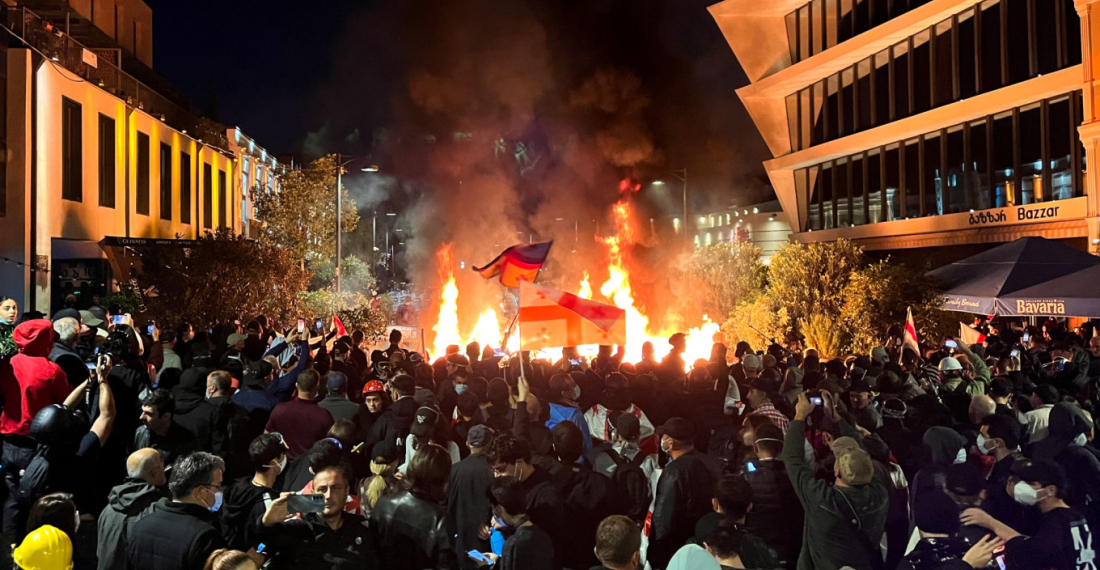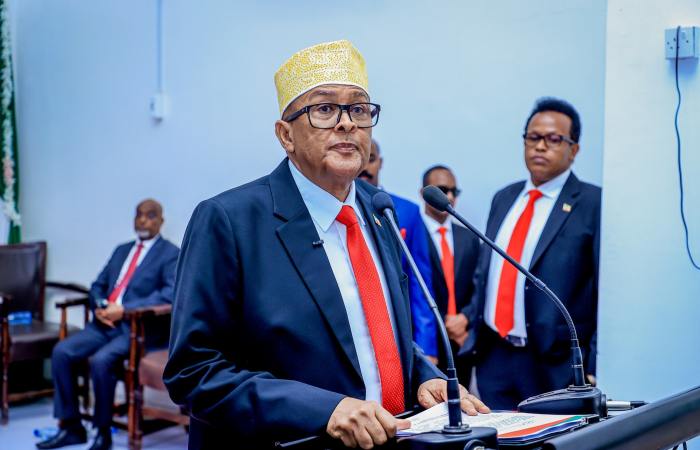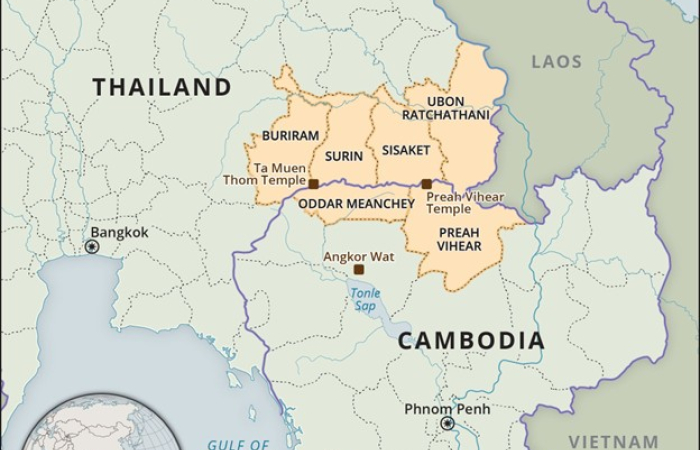Candidates of the ruling Georgian Dream party have won local elections held on 4 October in all five self-governing cities namely Tbilisi, Rustavi, Kutaisi, Batumi, and Poti based on preliminary results released by the Central Election Commission. The results appear to consolidate the ruling party’s control over Georgia’s largest municipalities amid a backdrop of political tension and opposition boycotts of the local elections.
However, the European Union said in a statement on 5 October that months of raids on independent media, restrictive laws targeting civil society, the imprisonment of activists and opponents, and electoral code changes favouring the ruling party drastically reduced the possibility of holding competitive elections.
Georgian prosecutors on Monday 6 October charged five opposition leadership figures with attempting to overthrow the government, after protests on Saturday culminated in clashes between police and demonstrators in the country’s capital, Tbilisi. Police repelled and dispersed the crowd, later making a number of arrests vowing to identify and apprehend others. Georgian Dream officials described the events as an attempt at a foreign-orchestrated coup and pledged to respond decisively.
During a late-night interview with Rustavi 2 channel on October 6, Georgian Dream Prime Minister Irakli Kobakhidze said that police were arresting protesters “who stormed the presidential palace.” Deputy Interior Minister Aleksandre Darakhvelidze also said during a briefing that police had arrested two more individuals, identified as R.Sh. and S.P., on October 4 for the illegal purchase and possession of firearms and ammunition.
According to the BBC, those arrested included opera singer Paata Burchuladze, one of the protest organisers. Earlier, he read out a declaration urging the employees of the ministry of internal affairs to obey the will of the people and to immediately arrest six senior figures from the Georgian Dream party. The government said 21 police officers and six protesters were taken to hospital with injuries. Waving Georgian and EU flags, tens of thousands of protesters marched in central Tbilisi on Saturday.
Georgia has been in crisis since the ruling Georgian Dream party claimed victory in last year's election, which the pro-European Union opposition says was stolen. Since then the government has paused talks on joining the EU.
According to the Central Election Commission, the incumbent mayor Kakha Kaladze of Tbilisi secured re-election with 71.58% of the vote (214,872 ballots). In Rustavi, Georgian Dream candidate Nino Latsabidze achieved a landslide victory, receiving 91.93% (30,962 votes). Kutaisi voters elected Davit Eremishvili, who gained 85.65% (37,635 votes). In Batumi, Giorgi Tsintsadze won the mayoral race with 80.62% (42,815 votes). In Poti, Georgian Dream candidate Beka Vacharadze was the sole contender and received 100% of the vote (14,431 ballots).
In their joint statement, High Representative/Vice President Kaja Kallas and Commissioner for Enlargement Marta Kos expressed concern over the political climate and treatment of opposition voices and said that a significant part of the opposition boycotted the vote, which also saw relatively low turnout.
The EU also criticised the Georgian government’s refusal to invite international monitors in time, particularly the OSCE/ODIHR, which undermined transparency and prevented credible international observation. Domestic organizations refrained from monitoring as well, citing a repressive environment. Kallas and Kos noted that large numbers of Georgians have continuously protested against the government’s repressive policies and reiterated the EU’s call for the release of all those arbitrarily detained.
The statement further urged calm and restraint in the post-election period, calling on the authorities to respect citizens’ rights to freedom of assembly and expression. It emphasised the need for constructive, inclusive dialogue involving all political actors and civil society, with all sides refraining from violence. Finally, the EU firmly rejected “disinformation regarding the EU’s role in Georgia” and condemned the personal attacks directed against the EU Ambassador to Georgia.
Source: commonspace.eu with the BBC, Georgia Today, Civil Georgia and agencies. Photo: Demonstrators in Tbilisi on 4 October 2025. Mikhail Yegikov/TASS






